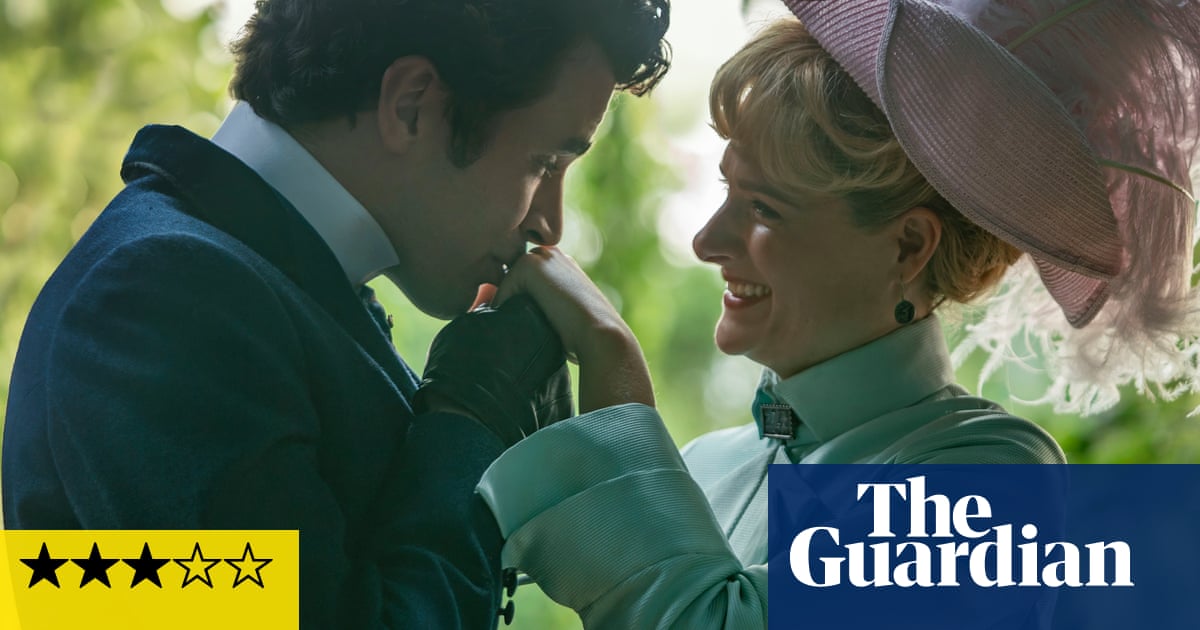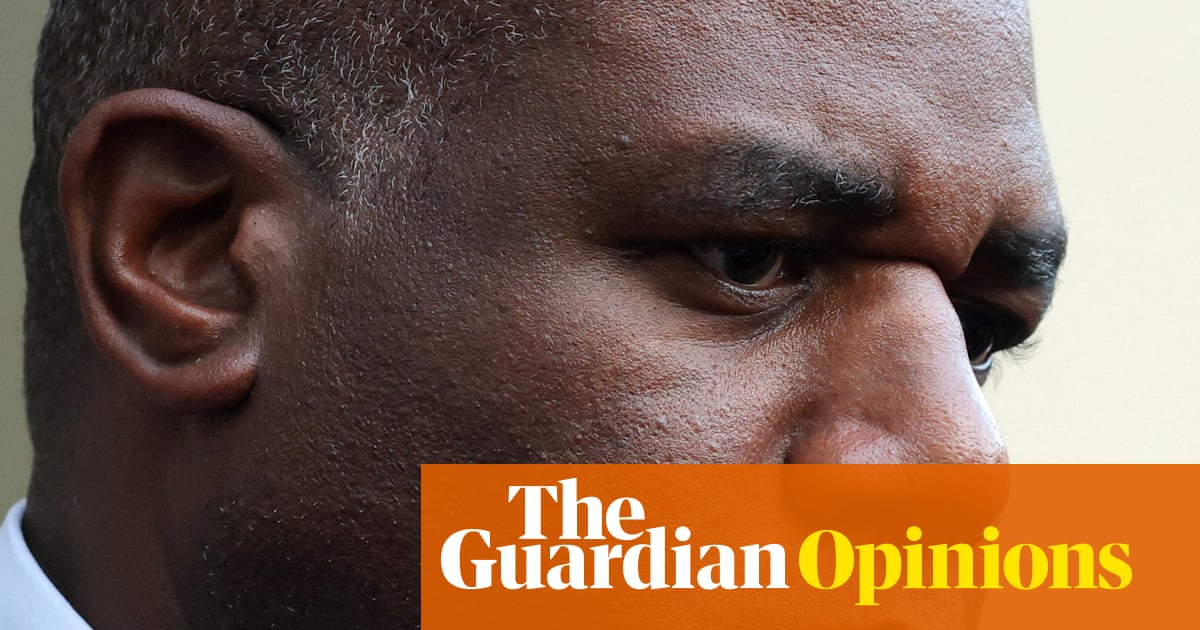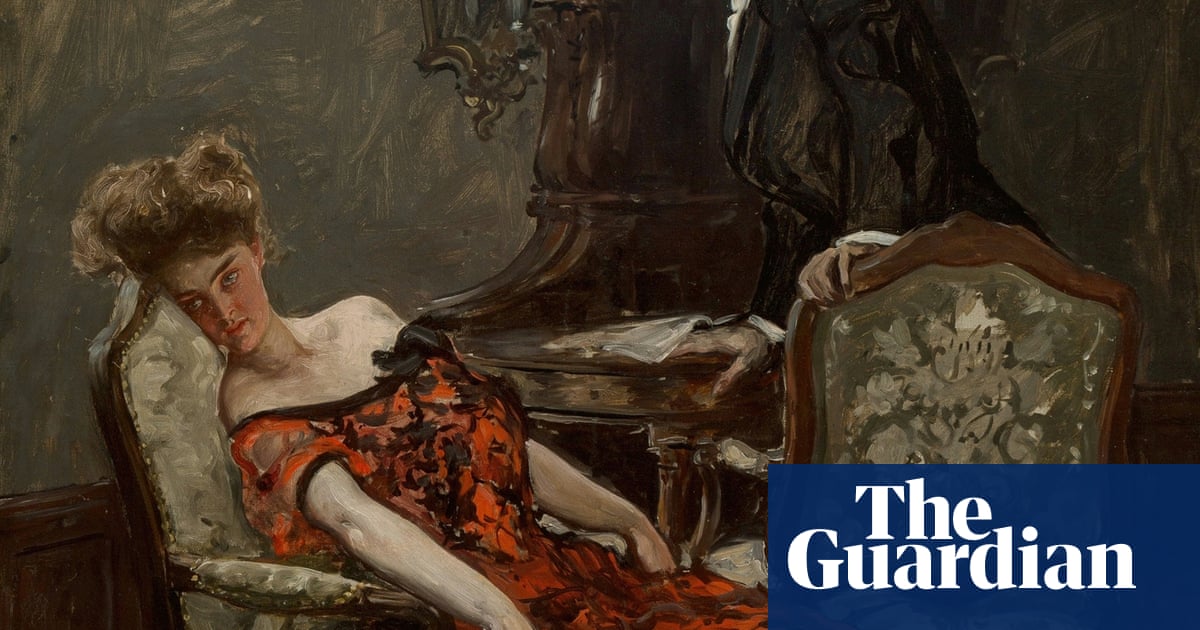Saoirse-Monica Jackson has done some dramas where everyone was quite sober and all her jokes fell flat. But This City Is Ours was different, not least because of the number of Scousers on set, the Derry Girls star explains. “It wasn’t, like, so serious,” she says. “We had craic off-camera.” However, while it was fun to make the buzzy new BBC crime drama (the female cast members named themselves the Muffia) the end result isn’t fun – although it is gripping. Featuring betrayals, love and a lot of violence, the show stars Sean Bean as a Liverpool drugs boss, while Jackson plays Cheryl Crawford, the wife of one of his underlings.
Cheryl is on the periphery, though her voice-of-experience warnings ring loud. “There’s nothing good about our men,” she tells Diana, the partner of a senior gang member. Jackson has lived in Liverpool for a couple of years now – which helped with the accent – and it was a treat to be back in her own bed at the end of a day’s filming. A lot of hair extensions helped with the look. “It was so heavy, so hot, to be under it every day,” she says with a laugh. “Our amazing hair and makeup designer, Adele Firth, really wanted to get the picture across of some girls in Liverpool – they take such pride in themselves. Every occasion is an occasion to really get dolled up.” Jackson found herself intrigued by Cheryl. “I think if, like her, you grow up around these types of people, or they’re adjacent to your family, that can blur the danger for you.”
Jackson is speaking from New York, where for the last two weeks she has been rehearsing the off-Broadway comedy Irishtown. After so much TV work, and a small part on the DC superhero film The Flash, it feels good to be in the theatre. With film and TV, she says: “You sort of show up ready to go. You’re not working it through together.” The idea of theatre is scary but rewarding: “Being on stage with your cast-mates and being extremely present for cues, because there’s a live audience.”
The job that changed Jackson’s life was Derry Girls, the Channel 4 comedy about teenagers in Northern Ireland in the last years of the Troubles. She played the lead, Erin Quinn. The night after it first aired in 2018 – in the days, just about, before streamers and on-demand viewing dominated – Jackson was walking through London on her way to the theatre in which she was appearing in Jez Butterworth’s The Ferryman, and she was stopped around 10 times by people who recognised her. “I was naive at the time. I just thought that that’s what it was like for everybody after their first TV job. I didn’t realise the gravitas of it.”
Was it hard to stay grounded with such early success? “Where I’m from, I don’t think I would ever have the opportunity to be up my own arse, as they say in Derry. I’m aware that being an actor is such a privilege, and also I’m speaking somebody else’s words. I love working with other actors, but I do wholly believe we are like a secondary vehicle to the writers.”
Jackson always wanted to be an actor. “I loved hearing adults around me telling stories when I was a kid. A part of Irish culture is storytelling and I knew I really wanted to do it.” The whole family loved films, her grandmother loved theatre, and Jackson was in drama clubs. She describes acting as like an out-of-body experience, which she got hooked on as a child, although it happens less frequently now as an adult. “I loved that feeling of escapism,” she says.
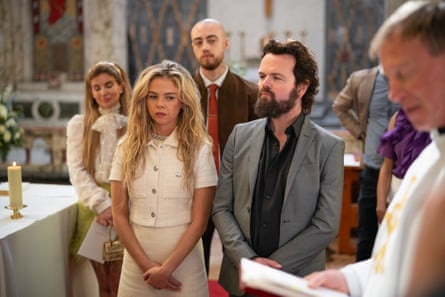
Jackson is the eldest of three with two younger brothers. The conflict, and British troops, had been like a “backdrop”, she says, “a presence that was always there. We had a barracks at the bottom of our street, an army checkpoint, so it just became day-to-day life.” That was her experience as a child, she points out. “I know it wasn’t like that for the adults around us, but I think everybody did a great job of helping protect us and shield us from the tensions. We would be out playing on the streets and there would be soldiers there. I think my mum always found that really hard. She’s from the south, but we didn’t know any different.”
Jackson thinks her generation learned a lot from growing up with it. A child when the Good Friday agreement was signed, she talks of “the downfalls of division and violence. I definitely think Irish people have a lot of sympathy for other places in the world that have that sort of oppression.”
Her parents, who at one time ran a hotel, were always supportive of Jackson’s ambition to become an actor, which fuelled her. “I had this blind faith, and I was always confident, as a child, in myself and what I could do. I think that was bred into me by my parents. It’s sort of crazy looking back on it, but I never thought it wasn’t going to work out.” Even when she was slogging around auditions, it felt “real, even if I was getting a ‘No’ from all those auditions, I still felt like I was getting the opportunity and that it was in reach. I was grateful for it.”
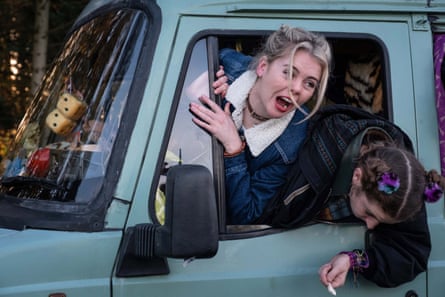
If there were struggles, they were more internal. Growing up in the 1990s and 2000s, Jackson remembers being bombarded with “diet culture. It was constantly in magazines, calling out celebrities for what size they were, and that definitely had an impact on me and all my friends. It’s something I’ve struggled with. And more so when I did start working in TV – being so aware of yourself and feeling like the world is more responsive to you the thinner you are.”
She remembers being on diets “from a really young age. I’m sad for my younger self, and I hope that we’re all moving to a place now where television is more reflective of actual people, so young girls and boys don’t have these hang-ups.” Although she is more concerned with being healthy now, and not getting run down while working, it can still be a struggle. “It’s definitely an inner monologue. I’m trying to learn tools to change that narrative in my head. I do feel like the world’s changing, and I’m just not prepared to be like that any more.”
It’s hard to have too much vanity when you’re as gifted in comedy as Jackson is, from her exaggerated facial expressions in Derry Girls, to the hilarious wig (part Joan of Arc, part Shrek’s Lord Farquaad) she wears in The Decameron, the Netflix comedy in which she plays a medieval servant. “Growing up,” she says, “I never felt like I was the prettiest girl in the room, and I think that’s character-building. If you don’t take yourself seriously, it’s good for you in all aspects of life. You get to play roles where you look glamorous, and those are fun, but there’s something liberating in the parts that are less glamorous.”

Her partner, the DJ Denis Sulta, is coming out to New York in a couple of weeks, she says, and surely her mother will be there too – they are often photographed out and about together. “I’m very grateful that we have the relationship that we have. She’s like my accomplice and I just want to spend as much time with her as possible, share all these exciting moments together. I’m sort of amazed at what’s happening around me and amazed at the opportunities I’m getting – and so is my mum.”
Jackson’s mum builds her up when she’s nervous, she says, which surprises me because she seems so self-assured. Does she have self-doubt? “Yeah, of course. I think that shows you care and want to learn. I had a lot of doubt going into this play. I had a real wobble of, ‘I’m not as equipped with theatre skills as the rest of the cast.’ It’s humbling to have those moments. I have an amazing cast around me. I’m going to learn a lot from them and I’m going to work as hard as I can.” She still has moments when she thinks she can’t do something. “But,” she says, “it’s such a rewarding feeling when you get to the end of it. I’ve done it.”

 2 months ago
42
2 months ago
42

